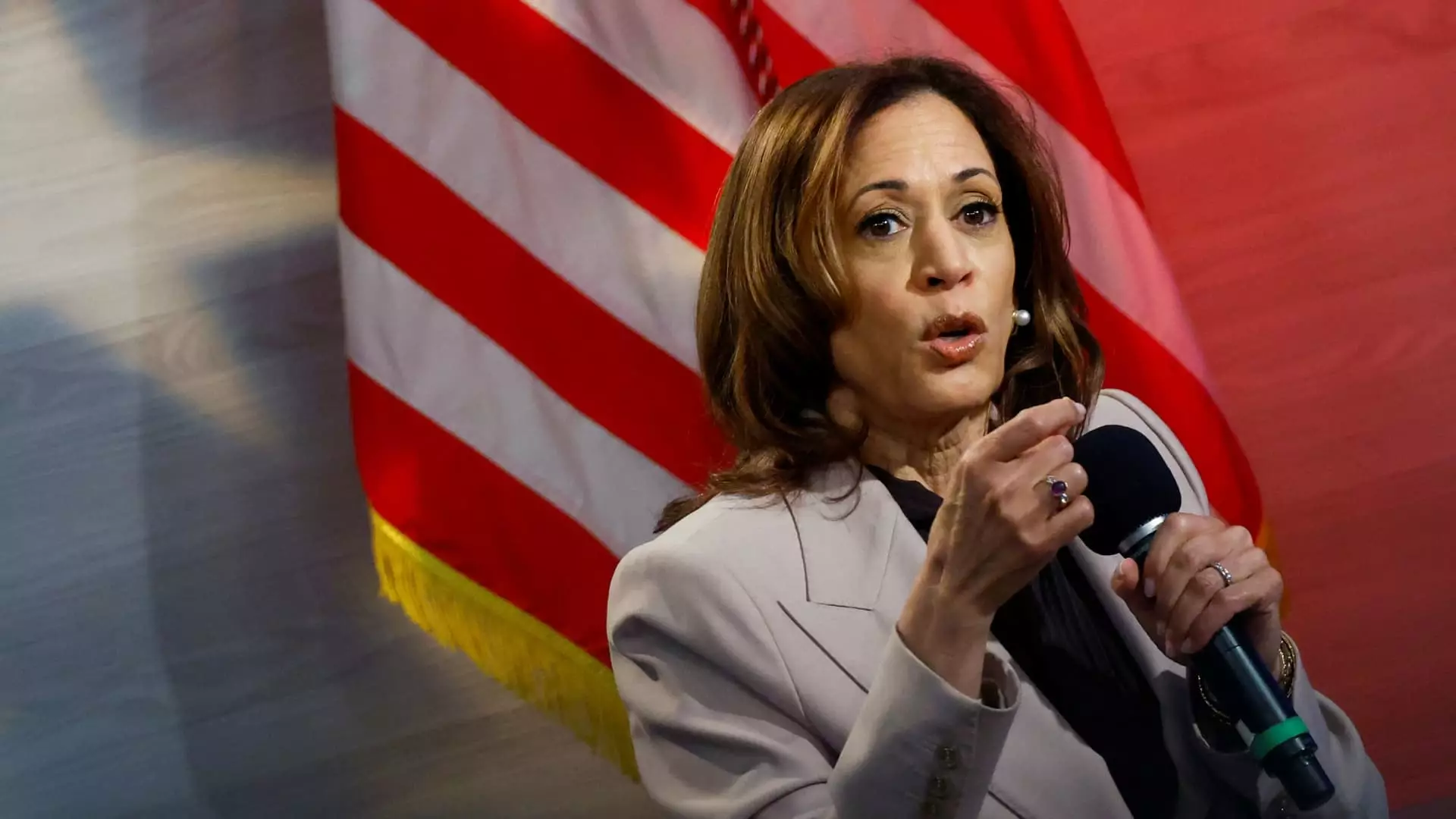As the political landscape shifts, Vice President Kamala Harris recognizes a pivotal challenge for the Democratic Party in the upcoming elections: winning back the support of young Black men. Recent polling data indicates a surprising trend, with more than 25% of Black men under 50 choosing former President Donald Trump over Harris. This revelation prompts a significant reevaluation of how economic proposals can resonate within this demographic, as they become increasingly pivotal to electoral outcomes. Harris’s assertion, “I’m working to earn the vote, not assuming I’m going to have it because I am Black,” highlights the need for a thoughtful approach that addresses the economic concerns of young Black men without resorting to entitlement or assumptions based on race alone.
To actively engage with this demographic, Harris has initiated an “economic opportunity tour,” which emphasizes her commitment to understanding and addressing the specific challenges faced by Black entrepreneurs. The crux of Harris’s message rests on economic empowerment—articulating how her administration has endeavored to increase access to startup capital. By advocating for increased funding in community banks and introducing policies aimed at alleviating barriers for small business owners, Harris illustrates a keen understanding of the socioeconomic hurdles that many young Black men confront. She notes that many individuals possess “great ideas” and “incredible work ethic,” but often lack the financial backing necessary to transform those aspirations into viable businesses.
Strategic Policy Proposals
Harris has also outlined several key policy initiatives aimed at addressing long-standing economic disparities. By proposing a $50,000 small business tax deduction and the removal of medical debt from credit scores, she seeks to create a more conducive environment for financial growth and stability in Black communities. Such proposals not only promise to facilitate entrepreneurship but also aim to mitigate the historical economic hurdles that have disproportionately affected Black individuals. She reasons that economic upliftment within these communities contributes positively to societal well-being as a whole, declaring, “When they do better economically, we all do better.” This interconnectedness emphasizes a broader vision—one in which the progress of marginalized communities is integral to national prosperity.
Harris’s proactive stance also responds strategically to the broader vulnerabilities the Democratic Party faces. As economic concerns dominate voter sentiment, her focus on addressing the anxieties surrounding the high cost of living becomes increasingly relevant. The transition from the Trump administration—where many Black voters experienced a sense of economic strength—to the Biden-Harris administration, marked by inflation and recovery challenges, presents a unique problem. Data from NBC News revealed that prior to Harris’s ascension on the Democratic ticket, a significant portion of young Black voters expressed leanings toward Trump. This trend is particularly alarming for Democrats, considering Biden’s 2020 success owing to a robust 92% support rate among Black voters, as noted by Pew Research.
The stakes have never been higher, and Harris’s approach serves as a counter-narrative to the divisive rhetoric often parroted by opposing parties. During his interaction with the National Association of Black Journalists, Trump faced criticism for derogatory remarks regarding Harris’s racial identity. Harris’s rebuttal to Trump’s criticisms sheds light on the stark differences in how each candidate perceives and engages with Black voters. Rather than dismissing their concerns or interests, Harris focuses on building a reciprocal relationship grounded in respect and acknowledgment of their unique struggles.
By emphasizing economic empowerment and actively listening to the needs of young Black men, Harris aims to recapture the trust of a demographic that could significantly influence the election’s outcome. As she articulates her strategy with clarity and purpose, the Democratic Party’s ability to connect with this critical voter bloc will likely determine their success in the electoral arena. The road ahead is fraught with challenges; however, it is also filled with the potential for meaningful change and relationships founded on shared aspirations for economic stability and community growth.


Leave a Reply